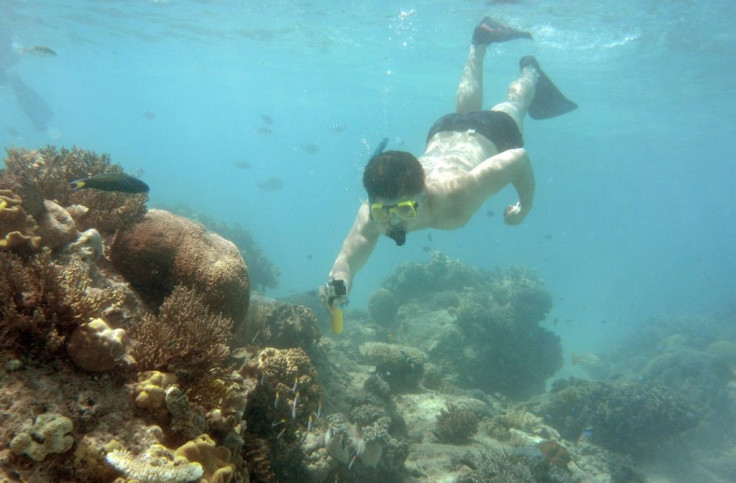Extreme Weather 2019: The Great Barrier Reef Facing Crisis Due To Climate Change

The Australian government said in a report Friday that the outlook for the Great Barrier Reef has been downgraded to "very poor" from "poor" and that the reef is in danger due to climate change.
"The significant and large-scale impacts from record-breaking sea temperatures have resulted in coral reef habitat transitioning from poor to very-poor condition," the Australian government said in The Great Barrier Reef Outlook Report.
The report states that the actions to save the Great Barrier Reef have never been more time-critical. Australia's government has pressured Unesco, the United Nations' cultural organization, about the impact of climate change on the Great Barrier Reef.
The report reads: “Significant global action to address climate change is critical to slowing the deterioration of the reef’s ecosystem and heritage values and supporting recovery. Such actions will complement and greatly increase the effectiveness of local management actions in the Reef and its catchment.”
The Great Barrier Reef Outlook Report has downgraded the health of the reef to 'very poor'. This video explains some of the reasons why this is happening. #GBR pic.twitter.com/JMgTL2tbPO
— Australian Academy of Science (@Science_Academy) August 30, 2019
The Great Barrier Reef Outlook Report is released every five years by the Australian government to measure the health of the world's largest coral reef system, which is located off the coast of Queensland.
The Great Barrier Reef is home to over a thousand species of fish, and also contributes 64,000 jobs to Australia's economy.
Climate change results in rising ocean temperatures, which bleaches corals, causing them to die. Researchers have found that the rate of coral bleaching has increased more than fourfold from 1980 to 2016.
A 2017 UN report found that heat stress would cause the majority of coral reefs to die by 2050, with the underwater habitats to be completely wiped out by 2100.
Imogen Zethoven, the Director of Strategy for the Australian Marine Conservation Society, said that the reefs can still be saved, but only if the government takes urgent action.
"We can turn it around, but only if the Prime Minister cares enough to lead a government that wants to save it," she said. "And saving it means being a leader here and internationally to bring greenhouse emissions down."
The Great Barrier Reef isn't the only major ecological system that will be affected by climate change.
Climate change, along with deforestation, will cause rising temperatures and changing rain patterns in the Amazon rainforest in Brazil. The North African Sahara desert will also expand as a result of global warming, causing mass migration in the African continent.
A pumice "raft" the size of Manhattan is drifting towards Australia, bringing along with it new marine life that could help with the recovery of the Great Barrier Reef's coral, half of which has been killed in recent years as a result of climate change https://t.co/aXg0loIv7F pic.twitter.com/FXy4xnbsqd
— CNN (@CNN) August 31, 2019
© Copyright IBTimes 2024. All rights reserved.





















